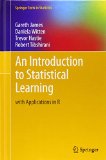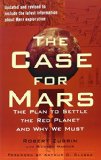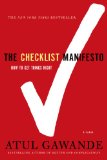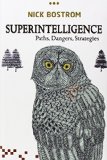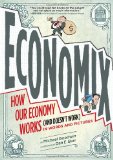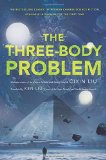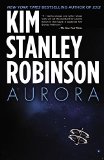The Best Books I Read in 2015
I have read many books in 2015, but it wasn’t all good. Some books, however, deserve to be acknowledged. I broke down my recommendations by categories: technical, non-fiction and fiction. There is no particular order.
Technical
An Introduction to Statistical Learning
This book wasn’t planned. Last January, I heard about the MOOC, and saw that people were excited about it. I started the class, bought the book, and I learned many things I didn’t know … but I was an ML beginner.
Eventually, I took the Machine Learning MOOC on Coursera, and it reinforced everything I had learned in Statistical Learning.
I felt that I had read the book too fast the first time around. When I got back to this book, in October, I re-read it cover-to-cover and found that it was now a “review” and “obvious” – a stark departure from where I had been at the beginning of the year.
The Statistical Learning MOOC is being given again in January 2016. I strongly recommend it.
- no wikipedia link…
- amazon
Non-Fiction
The Case For Mars
Many other books on Mars, both fiction and non-fiction, refer to this book first published in 1996. This book will sell you why we must go to Mars, how we can do it, and how to keep the costs down – reasonable even.
If you liked The Martian and would like to:
- see how much it has been influenced by this book
- get even deeper into the details
you will be pleased.
Does our generation need a BIG project? In that case, let’s fix global warming. And let’s go to Mars – let’s do both.
The Checklist Manifesto
From airline pilots to surgeons, checklists save lives. It’s a short book that could have been shorter, but still an enjoyable read.
Anywhere where many steps are necessary and skipping ahead can have consequences, checklists can help. The book covers many examples, through stories, and tries to convince that “we don’t need a checklist” is a (demonstratively) false and reckless idea.
Superintelligence
This was a recommendation from CGP Grey, and I started out as a skeptic. It sounds like Skynet, and I’ve already watched that movie. (and others worse)
However, most people in the field believe that we will be able to design a machine with human-level intelligence – the real question is one of timeline: in 10 years, 50 years, 100 years? What’s going to happen after that? Probably nothing good.
This book says that superintelligence might happen, and covers:
- the different types of possible superintelligence
- what a superintelligence might be capable of
- different outcomes and scenarios
- how to control a superintelligence, if possible
The newyorker has an introductory article about it.
I went through the whole book thinking that there was a good idea for a science-fiction novel every 2-3 pages. But it also made me realize that I had always assumed that it was impossible, or not something to worry about. I recommend the book, especially if you disagree with the premise.
Economix
Economic ideas often hide behind jargon and formulas – it doesn’t have to be like that. Here is a comic book that covers the history of economics and presents many concepts in a very approachable way.
- What works and what doesn’t?
- What are the myths?
- Austerity or government spending?
The author has done his homework and brings information from an extensive bibliography. I wish more subjects could be covered in this format. This is edutainment at its best.
- no wikipedia link…
- amazon
Fiction
Revelation Space
Humans have spread to nearby stars, all without FTL drives, and there are many mysteries to explore in this dark space opera.
I liked the first book because it touched on many interesting ideas – one of my favorite being the Fermi paradox. I kept reading to explore different aspects of this universe, and to see how things were going to work out.
The Three-Body Problem
I kept hearing about Liu Cixin, China’s Arthur C. Clarke. It doesn’t hurt that the book won the 2015 Hugo award. Science-fiction is often inspired by American culture and descriptions of the book hinted at “something different”.
It’s hard to talk about the book without revealing spoilers. It’s part of a trilogy, and I read the first two books. Let’s just say it’s well done, unusual, and that I can’t wait for the third book to be translated into English.
Aurora
This book comes from Kim Stanley Robinson, the author of the excellent Mars Trilogy. It also falls under the hard science fiction category. The book follows a generation ship on its way to colonize another star system.
Like any good science fiction, it raises more questions than it answers:
- Is it ethical to colonize with a generation ship?
- From a technical point of view, what are the challenges?
- Is it even possible for humans to colonize new worlds?
As an introduction, here’s a short video interview with the author.
Mr.Robinson’s style is meandering; there is a lot of reflections, descriptions, and dialogues. To me, that’s an essential part of what makes his stories rich, deep and … mournful. Nostalgia is why I keep coming back.
Closing Thoughts
If you have liked this blog post, please write your own. I want to read your book reviews and recommendations.
